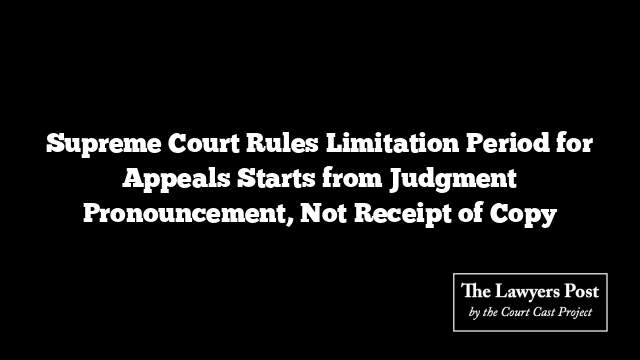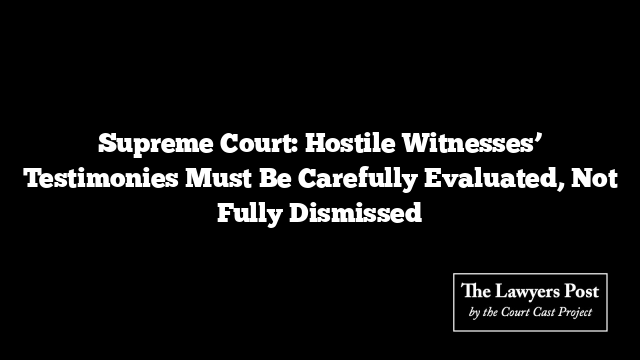In a significant ruling, the Supreme Court has clarified that under the Commercial Courts Act, 2015, the limitation period for filing an appeal begins from the date of the judgment’s pronouncement, not from when a party receives a copy of the judgment. This decision emphasizes the need for parties to be proactive in securing a certified copy of the judgment rather than relying on its formal delivery by the court.
The Court stressed that while Order XX Rule 1 of the Civil Procedure Code (CPC) mandates the court to provide a copy of the judgment, it also expects litigants to take reasonable steps to apply for the copy. The ruling indicates that the limitation period cannot be postponed indefinitely based on delays in obtaining the judgment copy, unless the litigant can show genuine efforts to acquire it within the prescribed timeframe.
The judgment came in response to a case where the petitioners challenged the Jharkhand High Court’s refusal to condone a delay of over 300 days in filing an appeal. The petitioners contended that the limitation period should only start after receiving a copy of the judgment, in accordance with the CPC provision. However, the Supreme Court rejected this argument, stating that such an interpretation would undermine the core principles of limitation law, which aims to encourage timely resolution of legal matters.
The Court made it clear that the parties cannot shirk their responsibility to act diligently in obtaining the judgment copy. If litigants do not make reasonable efforts to acquire the copy, the limitation period will still begin from the pronouncement of the judgment.
The bench, consisting of Justices J.B. Pardiwala and R. Mahadevan, highlighted that one of the central tenets of limitation law is to foster diligence and prevent parties from delaying their appeals due to administrative delays. They criticized the petitioners for their lack of action following the pronouncement of the judgment, noting that they had waited nearly eight months before attempting to obtain the certified copy.
The ruling also distinguished previous cases, such as Housing Board, Haryana v. Housing Board Colony Welfare Association and Sagufa Ahmed v. Upper Assam Polywood Products, where the parties had made genuine efforts to obtain the judgment. The Court emphasized that the principles applied in those cases were specific to situations where litigants had actively pursued obtaining the judgment copy.
Ultimately, the Supreme Court dismissed the appeal, reinforcing the importance of adhering to deadlines and maintaining diligence in commercial legal proceedings.





